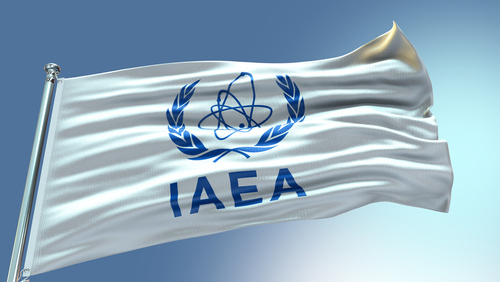Iran (Washington Insider Magazine) – has significantly increased its uranium enrichment, according to the UN watchdog agency the International Atomic Energy Agency (IAEA). This has been met with condemnation Germany, France and Britain. The trio released a joint statement on Aug. 19 voicing their “grave concern.”
The IAEA reported on Aug. 16 that Iran has reached new levels of uranium enrichment that are in violation of the 2015 nuclear deal, according to Reuters. A follow-up report on Aug. 17 said the country is enriching at 60% purity level, a significant increase from their 20% purity level in April. It takes 90% purity for uranium to be weapon-grade. The 2015 nuclear deal, from which the United States unilaterally withdrew, with Iran limits Tehran’s uranium enrichment purity levels to 3.67%.
“We reiterate that these are serious violations of Iran’s commitments under the Joint Comprehensive Plan of Action (JCPOA). Both are key steps in the development of a nuclear weapon and Iran has no credible civilian need for either measure,” the joint-country statement said.
Iran confirmed the report on Aug.18 through a press conference by the Foreign Ministry. Spokesperson Saeed Khatibzadeh said that the increased activity is in response to “widespread violation” of the agreement by the U.S. and non-compliance from the three other countries.
Khatibzadeh said that the actions are reversible if JCPOA commitments are honored and U.S. sanctions against Iran are lifted. He said that the nuclear program is peaceful and of civilian nature, and in line with the Non-Proliferation Treaty (NPT).
“Clearly the Islamic Republic of Iran will move forward with its peaceful nuclear program merely based on its needs and the decisions made by its leadership and within its Safeguards commitments, unless the US and other JCPOA parties return to the full and unconditional implementation of the JCPOA,” said Khatibzadeh.
U.S. President Biden wants to return to the 2015 deal that was abandoned by his predecessor, Donald Trump. The talks started in April involving the parties that signed the deal with Iran — China, France, Russia, Britain, the U.S., and Germany — but are currently suspended. Indirect talks in Vienna between Washington and Tehran to try to return both parties to the deal were being negotiated by the Europeans, but have since stalled.
“We urge Iran to return to the negotiations in Vienna as soon as possible with a view to bringing them to a swift, successful conclusion. We have repeatedly stressed that time is on no-one’s side,” the three European countries added in their Aug. 19 statement.
State Department spokesperson Ned Price released a statement calling the nuclear development “unconstructive and inconsistent with a return to mutual compliance,” according to the Associated Press.
“Such escalations will not provide Iran negotiating leverage in any renewed talks on a mutual return to JCPOA compliance and will only lead to Iran’s further isolation,” said Price.
“Iran’s nuclear advances have a bearing on our view of returning to the JCPOA,” he added.


























